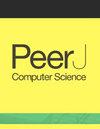基于优化特征选择的文本分类候鸟
IF 3.5
4区 计算机科学
Q2 COMPUTER SCIENCE, ARTIFICIAL INTELLIGENCE
引用次数: 0
摘要
文本分类任务,尤其是那些涉及大量特征的任务,给有效的特征选择带来了巨大挑战。本研究引入了一种新方法 MBO-NB,它将迁移鸟优化(MBO)方法与天真贝叶斯(naïve Bayes)作为内部分类器进行整合,以应对这些挑战。这项研究的动机源于现有技术在有效处理大量特征集方面公认的局限性。传统方法往往不能充分简化特征选择过程,导致分类准确率不理想,计算开销增加。针对这一需求,我们的主要目标是提出一种可扩展的有效解决方案,以提高文本分类系统的计算效率和分类准确性。为了实现这一目标,我们使用信息增益算法对原始数据进行预处理,战略性地将特征数从平均 62221 个减少到 2089 个。通过大量实验,我们证明了 MBO-NB 在减少特征方面比其他现有技术更加有效,从而显著提高了分类准确率。此外,天真贝叶斯与 MBO 的成功整合为特征选择问题提供了一个全面而完善的解决方案。在与粒子群优化(PSO)的单独比较中,MBO-NB 在四个设置中的表现始终优于其他技术,平均高出 6.9%。这项研究为改进特征选择方法提供了宝贵的见解,从而推动了文本分类技术的发展。MBO-NB 提供了一种可扩展的有效解决方案,满足了在文本分类中改进特征选择方法的迫切需要,从而促进了更强大、更高效的分类系统的开发。本文章由计算机程序翻译,如有差异,请以英文原文为准。
Migrating birds optimization-based feature selection for text classification
Text classification tasks, particularly those involving a large number of features, pose significant challenges in effective feature selection. This research introduces a novel methodology, MBO-NB, which integrates Migrating Birds Optimization (MBO) approach with naïve Bayes as an internal classifier to address these challenges. The motivation behind this study stems from the recognized limitations of existing techniques in efficiently handling extensive feature sets. Traditional approaches often fail to adequately streamline the feature selection process, resulting in suboptimal classification accuracy and increased computational overhead. In response to this need, our primary objective is to propose a scalable and effective solution that enhances both computational efficiency and classification accuracy in text classification systems. To achieve this objective, we preprocess raw data using the Information Gain algorithm, strategically reducing the feature count from an average of 62,221 to 2,089. Through extensive experiments, we demonstrate the superior effectiveness of MBO-NB in feature reduction compared to other existing techniques, resulting in significantly improved classification accuracy. Furthermore, the successful integration of naïve Bayes within MBO offers a comprehensive and well-rounded solution to the feature selection problem. In individual comparisons with Particle Swarm Optimization (PSO), MBO-NB consistently outperforms by an average of 6.9% across four setups. This research provides valuable insights into enhancing feature selection methods, thereby contributing to the advancement of text classification techniques. By offering a scalable and effective solution, MBO-NB addresses the pressing need for improved feature selection methods in text classification, thereby facilitating the development of more robust and efficient classification systems.
求助全文
通过发布文献求助,成功后即可免费获取论文全文。
去求助
来源期刊

PeerJ Computer Science
Computer Science-General Computer Science
CiteScore
6.10
自引率
5.30%
发文量
332
审稿时长
10 weeks
期刊介绍:
PeerJ Computer Science is the new open access journal covering all subject areas in computer science, with the backing of a prestigious advisory board and more than 300 academic editors.
 求助内容:
求助内容: 应助结果提醒方式:
应助结果提醒方式:


